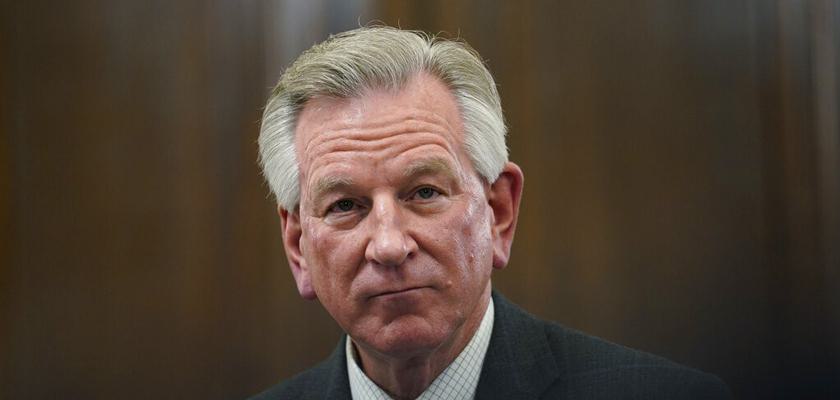The United States Senate rejected a federal abortion-on-demand bill on Wednesday.
Joe Manchin (D-West Virginia) and all 50 Senate Republicans voted against cutting off debate to vote on the pro-abortion legislation. The motion needed 60 votes to end the Republican filibuster. It only got 49.
U.S. Sen. Tommy Tuberville (R-Alabama) released a statement following his vote against Senate Democrats’ abortion legislation.
“Democrats’s knee-jerk effort to make abortions available on-demand until the moment of birth is extreme and out of step with what most Americans believe,” Tuberville said. “This is the second time the Senate has voted on this unrestrained policy – and for the second time, it has failed to get majority support. In Alabama, we hold our Christian conservative values in high regard and believe that every life is precious. I voted against this bill today to protect the lives of the unborn.”
U.S. Sen. Richard Shelby (R-Alabama) also voted against the legislation.
On May 2nd, a draft U.S. Supreme Court opinion on the Mississippi abortion case – Dobbs v. Jackson Women’s Health Organization – was leaked to the press. According to that leaked draft, the majority of the court voted to uphold the Mississippi law, which limits abortion to 15 weeks, therefore overturning the controversial Roe v. Wade that has been in place since 1973.
If the Supreme Court’s final decision mirrors the draft opinion, individual states would then have the authority to enact their own restrictions on abortion. Alabama already has a law and state constitutional amendment in place that would ban the procedure.
The court confirmed the draft's authenticity but cautioned it wasn’t the final ruling. The court is expected to issue its opinion in late June or early July.
Senate Majority Leader Chuck Schumer (D-New York) announced that the Senate would vote on the Women’s Health Protection Act in response to the leaked draft opinion. The bill would supersede all state and federal laws on abortion, allowing for abortions until a fetus is "viable," usually around 23 to 24 weeks, and allow abortions after viability when a healthcare provider determines the pregnancy would pose a risk to the mother's life or health.
The bill would also eliminate long-standing conscience protections to ensure religiously affiliated health care providers do not face government discrimination for declining to perform certain health care services on religious or moral grounds.
Republicans say the bill's language gives such wide latitude that a provider could offer a late-term abortion to protect a woman’s mental health. Among their other concerns is that the doctor or other provider could determine viability, and the bill specifically overrides any conflicting state laws that impose restrictions.
Republicans said that if Roe falls, states should be in charge of making decisions that affect their residents.
Some Democrats have argued for eliminating the filibuster in order to pass this abortion bill. Manchin’s vote means that even if that rule change had been in place, this bill would still have failed.
The United States is one of seven nations, including China and North Korea, that allow for abortion on demand beyond the point babies in utero can feel pain. Forty-seven out of 50 European nations limit abortion at 15 weeks or earlier.
Polls show a complicated view among Americans on abortion. A Pew Research Center survey conducted in March found that 44% of the public thought abortion should be legal in the first six weeks of pregnancy, versus 21% who said it should be illegal and 19% who said it depends. Support falls off later in the pregnancy. At 14 weeks, 34% say abortion should be legal, and at 24 weeks, just 22%.
To connect with the author of this story, or to comment, email brandon.moseley@1819News.com.
Don’t miss out! Subscribe to our newsletter and get our top stories every weekday morning.










